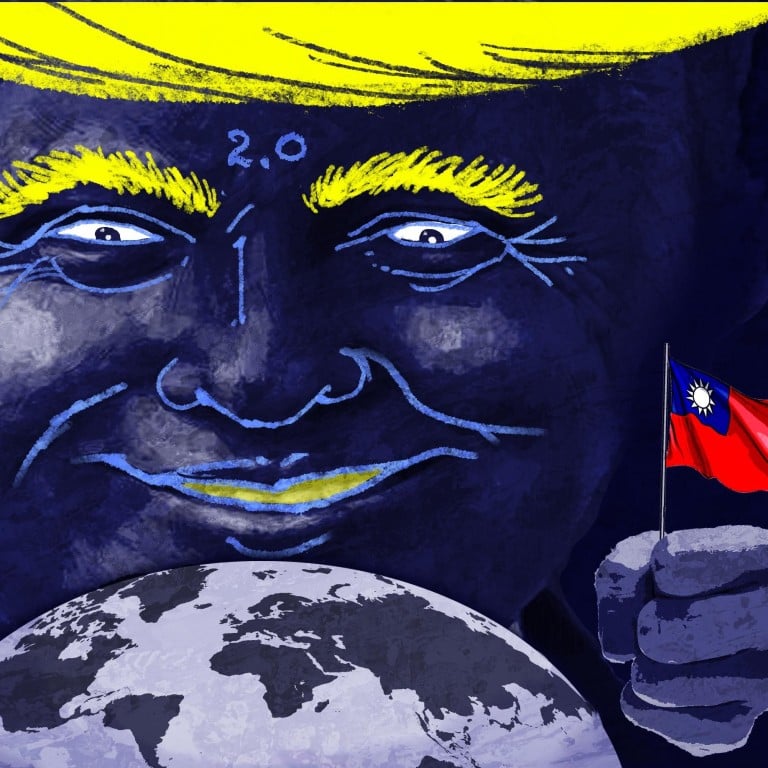
Former President Donald Trump, who recently criticized Taiwan for stealing the semiconductor industry, has a good chance of being the Republican nominee in the 2024 presidential election. He could even become the next American president. Last July, Trump issued a similar opinion, criticizing Taiwan for taking all the American semiconductor jobs and proposing that the U.S. enact trade barriers and tax Taiwan to stop it.
Many people worry that if Trump returns to power, Taiwan’s semiconductor industry will be severely damaged in a trade war similar to that between the U.S. and China. What makes people in Taiwan even more disconcerted is that in Trump’s view, the U.S.-Taiwan relationship can only serve U.S. interests. Just as he criticized Taiwan for stealing American semiconductors, he is now coming up with new schemes to stop it. In the near future, the U.S. could foreseeably publicize that it will seize Taiwan’s semiconductor supply chain in order to force Taiwan to hand over the supply chain secrets at the heart of semiconductor industrial manufacturing. If Taiwan does not comply, the U.S. will threaten to stop safeguarding Taiwan’s security, in which case Taiwan would face nearly insurmountable difficulties.
A theme of Trump’s campaign is that he is adept at using populist methods to inspire approval among voters. His Taiwan policy is to put America and American interests first, and it is full of political calculations as he even considers his own electoral interests. If he is reelected, the outcome of a Trump 2.0 will be an inevitable escalation of the U.S.-China trade war, and the pressure on Taiwan’s semiconductor industry will only increase.
Even more worrisome is whether Taiwan will fall into a trap as bait. Because Trump is campaigning on ending the Russia-Ukraine war it’s very possible that if he is elected, he will abandon Ukraine by signing a quid pro quo agreement with Russia to end the war. Do not forget that Trump has already betrayed allies, such as the Kurds who fought ISIS for the U.S. This is exactly how he schemes and behaves, willing to betray others for his own self-interest. In other words, for his own electoral advantage, will Trump think of Taiwan as an instrument? Will he use it as bait and trade it to the Chinese Communist Party to reach an agreement with conditions favorable to the U.S.?
In fact, if the U.S. abandons Taiwan, it wouldn’t be the first time. In 1949 and 1978, the U.S. abandoned Taiwan. Trump previously thought that Taiwan was the nib in a pen he would use to scratch the surface of China’s hard desktop. So he may very well threaten Taiwan’s ruling party into provoking Mainland China, thereby carrying out his political schemes. This would inevitably strain Taiwan’s security.
What’s more, Taiwan’s Democratic Progressive Party adheres to a core “pro-U.S., anti-China” value when dealing with its relationship with the U.S. and China. This is why Taiwan would face a greater potential crisis than China should Trump be elected. As Shelley Rigger, a well-known expert on the issue of the Taiwan Strait, said in an online seminar held by an American think tank, she does not worry that Lai Ching-te will move toward formal independence for Taiwan because he is subject to many restrictions. However, she worries that some people in America will encourage and even press Lai to do dangerous things that go against Taiwan’s interests yet that he cannot object to, such as how President Tsai Ing-wen could not object to then-Speaker of the House Nancy Pelosi’s visit to Taiwan. That visit resulted in a blockade and missile tests by China and triggered a crisis in the strait.
Trump 2.0 would not only be a nightmare for China, but also a dilemma for Taiwan that would intensify the crisis in the Taiwan Strait. Unless President-Elect Lai is willing to change from his pro-U.S., anti-China stance, adopt a middle-of-the-road approach to the relationship between the U.S., China and Taiwan and enhance positive cross-strait development, the Taiwanese people are on their own. They had better fasten their seat belts.

Leave a Reply
You must be logged in to post a comment.